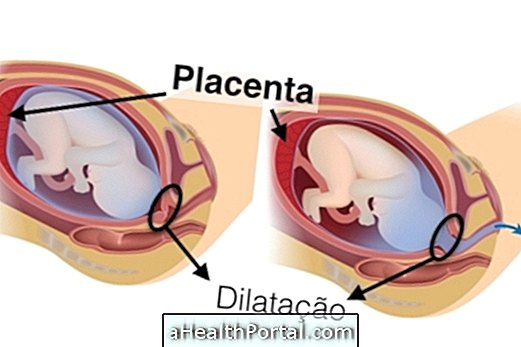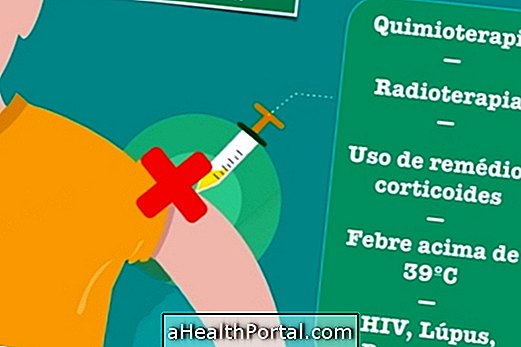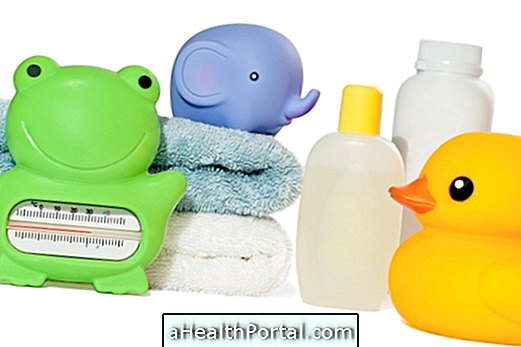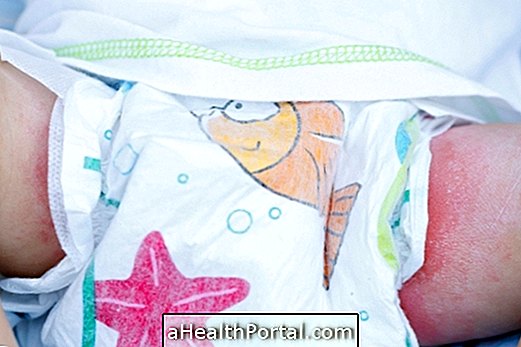Prenatal care is the medical follow-up of the woman during pregnancy, which is also offered by SUS. During the prenatal sessions, the doctor should clarify all the woman's doubts about pregnancy and delivery, as well as ask for tests to see if everything is okay with the mother and the baby.
It is during the prenatal visit that the doctor must identify the gestational age, the risk classification of the pregnancy, if it is low risk or high risk, and inform the probable date of delivery, according to the uterine height and the date of last menstruation.
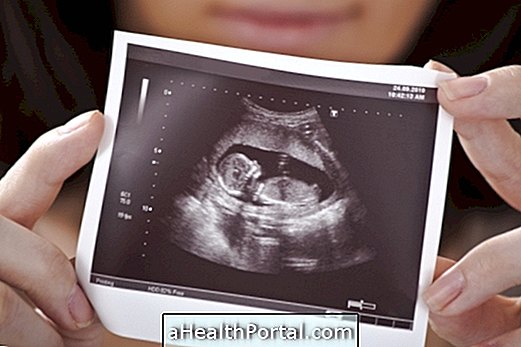
When to start prenatal care
The prenatal care should begin as soon as the woman discovers that she is pregnant. These consultations should be performed once a month until 28 weeks gestation, every 15 days from the 28th to the 36th week and weekly from the 37th week of gestation.
What happens at a prenatal appointment
During the prenatal visit, the nurse or doctor will usually check:
- The weight;
- Blood pressure;
- Signs of swelling of the legs and feet;
- The uterine height, measuring the belly vertically;
- Fetal heart rate;
- Observe the breasts and teach what can be done to prepare them for breastfeeding;
- The woman's vaccine bulletin to give the vaccines in Fata.
Also, it is important to ask about common pregnancy troubles like heartburn, burning, excess saliva, weakness, abdominal pain, colic, vaginal discharge, hemorrhoids, difficulty breathing, bleeding gums, back pain, varicose veins, cramps and during pregnancy, clarifying all doubts of the pregnant woman and providing the necessary solutions.

Pre-Natal exams
The examinations that must be performed during the prenatal period, and which are requested by the family doctor or obstetrician, are:
- Ultrasonography;
- Complete blood count;
- Proteinuria;
- Dosage of hemoglobin and hematocrit;
- Coombs test;
- Stool examination;
- Bacterioscopy of vaginal contents;
- Fasting glycemia;
- Examination to know the blood type, ABO system and Rh factor;
- HIV: human immunodeficiency virus;
- Serology for rubella;
- Serology for toxoplasmosis;
- VDRL for syphilis;
- Serology for hepatitis B and C;
- Serology for cytomegalovirus;
- Urine to know if you have a urinary tract infection.
Prenatal visits should begin as soon as the pregnancy is discovered. The woman should receive important information about the nutritional issue, weight gain and the first care with the baby. Learn more details of each exam, how they should be done and their results.
Where to do prenatal care
Prenatal care is a right for every pregnant woman and can be performed at health posts, hospitals or private or public clinics. During these consultations the woman should also seek information on procedures and preparation for childbirth.
Characteristics of High Risk Pregnancy
During the prenatal care the doctor should tell you if the pregnancy is high or low risk. Some situations that characterize a high risk pregnancy are:
- Heart disease;
- Asthma or other respiratory diseases;
- Renal insufficiency;
- Sickle cell anemia or thalassemia;
- Hypertension before the 20th week of gestation;
- Neurological diseases, such as epilepsy;
- Leprosy;
- Autoimmune diseases such as systemic lupus erythematosus;
- Deep venous thrombosis or pulmonary embolism;
- Uterine malformation, myoma;
- Infectious diseases such as hepatitis, toxoplasmosis, HIV infection or syphilis;
- Use of licit or illicit drugs;
- Previous abortion;
- Infertility;
- Intrauterine growth restriction;
- Pregnancy of twins;
- Fetal malformation;
- Pregnancy malnutrition;
- Gestational diabetes;
- Suspected breast cancer;
- Teenage pregnancy.
In this case the prenatal care should contain the necessary tests to verify the disease and should be given guidelines on the well-being of the mother and the baby. Learn all about risky pregnancy and your care.



